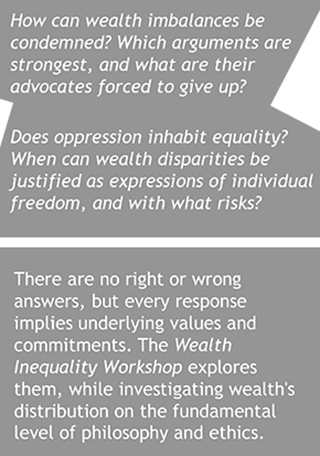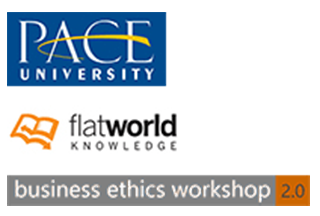| |
 |
|
A Thought Experiment about Wealth Distribution: Rawls’ Veil of Ignorance
From childhood, you may remember going for pizza after school, and having about half the money to get a slice. So, you’d pair with a friend, buy the slice, and then one of the two would use a plastic knife to cut it, leaving the other to choose the part.
The I cut, you choose strategy works well when it comes to dividing things up fairly. It may be that the American philosopher John Rawls used the method himself as a boy. What’s certain is that he perceived the exact reason we try to cut judiciously: anxiety about which side we're going to get. It’s the anxiety of uncertainty that generates fairness.
The Veil of Ignorance and Wealth Inequality
The power of anxious uncertainty to guarantee fairness centers Rawls’ approach to wealth inequality. He proposed that before discussing how money, education, medical care and the rest should get apportioned in society, we ought to put ourselves behind the same veil of ignorance as the pizza cutter: we’re free to advocate whatever pattern of distribution we like, but, we don't get to know beforehand which share will be ours in the end.
For example, you might look at American reality today, and decide to advocate the current pattern of wealth distribution. That’s ethically justified, as long as you’re willing to accept this: You are about to be shaken up and thrown back into life at some unpredictable point within the society that you just advocated. So, it may turn out:
- You were born in a leading research hospital in Boston, or it may be that you came into the world in a midwife’s cabin in Ely, Minnesota.
- Your parents trace back to the Mayflower, or maybe they came over on a slave boat. Maybe you’re squeezed into a boxcar right now, crossing from Mexico.
- You did well in school, or, you struggled for your high school diploma.
- You may use the bathroom marked M, or, it may be that you’re a W.
- If you’re lucky you're generally healthy, but you might not be lucky.
The list goes on. The point is that any pattern you propose for distributing wealth in society is justified if you’re willing to take the odds that go with not knowing which place and role will ultimately be yours.
The Veil of Ignorance, Equality, Freedom, and the Response to Wealth Inequality
Rawls himself suspected that the anxiety of uncertainty would lead reasonable people to value equality more than freedom. That is, individuals faced with the threat of ending up near society’s poverty-stricken extreme would sacrifice some of their autonomy, some of their freedom to create themselves as they’d like to be in the world (which potentially includes becoming wealthy), in exchange for the certainty that they won’t get caught at the bottom of a steep wealth curve. Concretely, this means implementing a society where money gets severely redistributed from - liberated from, seized from - the rich and not so rich, and spread toward the poor and poorest, with the goal being that no one ends up significantly worse off than most everyone else.
It doesn’t have to be that way, though; equality doesn’t have to be valued over freedom. There will always be those willing to risk even the most extreme poverty for the chance at unconstrained life and wealth. Beyond that, there will be others who affirm that unbridled freedom actually leads to equality, and still others who assert that equality leads to freedom. And the possibilities go on.
The Thought Experiment
How would you distribute society’s wealth? What mechanisms would you employ? How would the resulting society look, especially in terms of the tension stretched between equality and freedom? Any answer is ethically justified, as long as the following is agreed: Your power is absolute, but your knowledge is constrained; your vision will be implemented no matter how radical, but you won’t know how and where you'll be after you’ve been shaken up and reassigned your hometown / age / parents / education / profession / everything.
|
|





